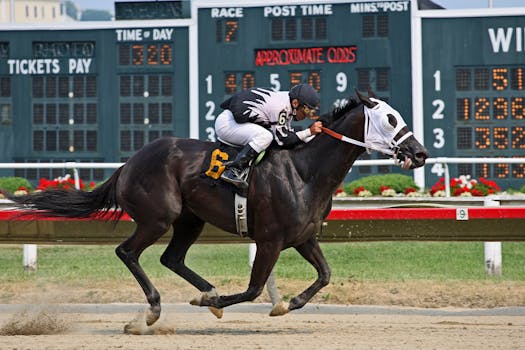How to Avoid Confirmation Bias in Betting Decisions
When engaging in betting decisions, whether in sports, stock markets, or even daily business decisions, it's crucial to be aware of how confirmation bias can cloud your judgment. Confirmation bias is a psychological phenomenon where individuals favor information that confirms their pre-existing beliefs or hypotheses, regardless of whether the information is true. In the realm of betting, this can lead to poor decision-making and significant financial losses. This article will explore effective strategies to avoid confirmation bias in betting decisions, ensuring more rational and profitable outcomes.
Understand and Recognize Confirmation Bias The first step in combating confirmation bias is understanding and recognizing it. Confirmation bias can manifest in various ways, such as giving more weight to evidence that supports your initial bet while disregarding contradictions. Recognition involves being mindful of your tendencies and actively questioning your decisions. Ask yourself: Am I favoring information because it supports my desires, or is it truly reflective of reality?
Diversify Your Information Sources One effective approach to avoid confirmation bias is diversifying your sources of information. Relying on a single news outlet, tipster, or data source can skew your perspective, making you more susceptible to confirmation bias.
Advantages:
- Access to a broader range of viewpoints and data.
- Reduces the risk of echo chambers, where only similar opinions are shared and amplified.
- Information overload can sometimes lead to confusion.
- Quality of sources can vary, requiring more effort to verify credibility.
- Facilitates decision-making based on data and trends rather than emotions or hunches.
- Enhances the ability to evaluate the validity and relevance of different pieces of information.
- Requires a certain level of skill and understanding in statistical methods.
- Can be time-consuming, which might not suit fast-paced betting environments.
- Exposure to different opinions and strategies.
- Reduces the risk of individual bias influencing decisions.
- Groupthink can occur if the group is not diverse enough.
- Discussions can lead to conflicts or can be dominated by persuasive individuals.
- Helps in identifying patterns in your decision-making.
- Encourages continuous learning and improvement.
- Might be perceived as time-consuming.
- It requires honesty and willingness to learn from mistakes.
Disadvantages:
Practical Example: Consider a bettor who only follows a favorite sports analyst. By also checking a variety of sports analytics websites, forums, and opposing viewpoints, the bettor can get a more balanced view of the betting scenario.
Employ Critical Thinking and Analytical Tools Critical thinking is crucial in scrutinizing the information you gather. Analytical tools and statistical methods can help quantify information and strip away biases. Tools like regression analysis, probability models, and even simple pros and cons lists can provide more objective bases for your decisions.
Advantages:
Disadvantages:
Practical Example: A football bettor might use statistical software to analyze historical performance data of teams rather than relying solely on gut feeling or expert opinions.
Engage in Group Discussions Discussing your betting ideas with a diverse group can provide multiple perspectives, helping to challenge and refine your strategies. This is particularly useful in complex betting markets such as stocks or sports betting pools.
Advantages:
Disadvantages:
Practical Example: Joining online forums or local betting clubs where members critically evaluate each other's betting strategies can be beneficial.
Reflection and Post-Analysis Reflecting on your betting decisions after the fact is essential. Analyze whether your initial biases influenced the bet and how your approach can be improved. Keeping a decision journal where you record your thought process for each bet can be useful.
Advantages:
Disadvantages:
Practical Example: After making a series of bets, a bettor reviews their decision journal to identify any recurring biases and adjusts their strategy accordingly.
Conclusion Avoiding confirmation bias in betting requires awareness, diverse information sources, critical thinking, collaborative discussions, and reflective practices. By implementing these strategies, bettors can enhance their decision-making process, leading to more objective and successful betting outcomes. Remember, the goal is to make informed decisions that are not clouded by personal biases. As you continue to refine your betting strategies, keep these approaches in mind and always strive for a balanced perspective in your betting endeavors.

.png)





